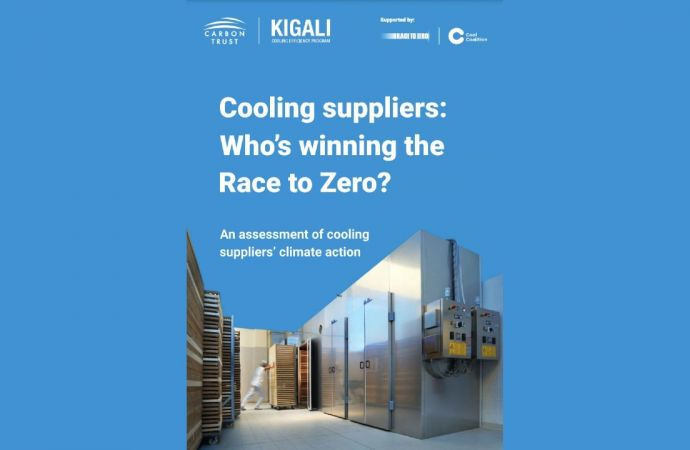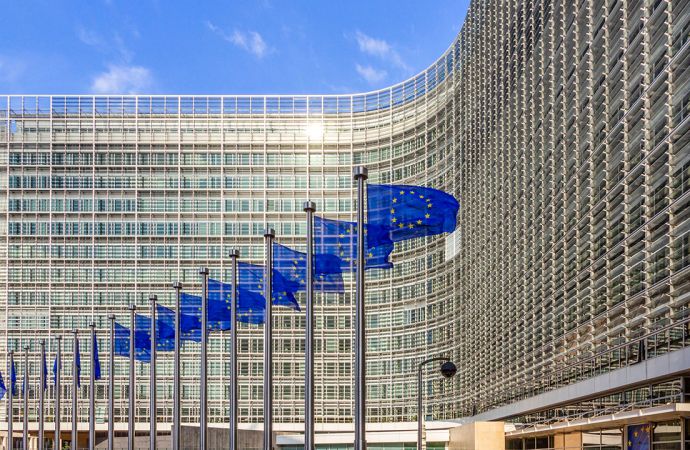hydrocarbons21.com has been selected by the United Nations Environment Programme (UNEP) as a platform to mobilise the global HC community and invite stakeholders to send their case studies about real-life experience with alternatives to HCFC-based technology. The submission deadline is 15 July.

UNEP is inviting companies or organisations experienced in the field of HCFC-free technologies to send a short abstract to the agency by 15 July. The UN Environment Programme is especially interested in receiving examples from operations in developing countries, although case studies from other regions would also be acceptable. All submitted studies should describe how and why a company either replaced an existing HCFC-based system with a non-HCFC one; or, where no HCFCs were previously used, a non-HCFC technology was chosen from the start.
Selected examples would be included on the UNEP HCFC Help Centre (http://www.unep.fr/ozonaction/topics/hcfc.asp) and possibly in other documents. Natural refrigerants are among the preferred options to avoid or replace HCFCs, as Rajendra Shende, Head of UNEP’s OzonAction Branch, told hydrocarbons21.com:
"Technologies based on natural refrigerants provide unique opportunities to achieve enhanced climate benefits while phasing out HCFCs. Additional significant climate and economic benefits could be gained by improving the energy efficiency of the appliances and equipment. By sharing real-world experiences of commercially-available carbon dioxide, hydrocarbon and ammonia solutions - including the pros and cons of those technologies compared to HCFC technology - we will build confidence in those natural refrigerant alternatives and thereby promote their wider adoption around the world. UNEP DTIE OzonAction strongly encourages companies who have such experiences with natural refrigerants to reach out and share their examples and data with enterprises in developing countries.”
HCFC Help Centre
The HCFC Help Centre is designed to help developing countries to opt for environmentally sound alternatives to ozone-depleting substances controlled under the Montreal Protocol. It provides an overview of the applicable legislative framework to phase out HCFCs, as well as key information sources in science, technology, policy, and financing. hydrocarbons21.com has been recognised as a reference source for natural refrigerants on the UNEP HCFC Help Centre website.
New study: HFCs are “Low Hanging Fruits” in climate challenge
The call for natural refrigerants real-life examples comes just one day after a new study issued by a team of international researchers found that HFCs in air conditioning units and other applications could equal 45% of total CO2 emissions by 2050 if their growth remained unchecked. Rapid action to freeze and cut HFC emissions now, alongside with promoting readily available alternatives, would be the way forward, UN Under-Secretary General and UNEP Executive Director Achim Steiner commented:
"But there are other low hanging fruit in the climate change challenge and this new scientific paper spotlights one of them - HFCs. By some estimates, action to freeze and then reduce this group of gases could buy the world the equivalent of a decades-worth of CO2 emissions."
Contact UNEP
To submit your case studies, please fill in the “Call for Case Studies” attached to this article and send it to the following persons by 15 July:
Ruperto de Jesus: ruperto.dejesus@unep.org
Jim Curlin: jim.curlin@unep.org
Etienne Gonin: etienne.gonin@unep.org
For any other question, you can contact the hydrocarbons21.com Team at info@hydrocarbons21.com
Selected examples would be included on the UNEP HCFC Help Centre (http://www.unep.fr/ozonaction/topics/hcfc.asp) and possibly in other documents. Natural refrigerants are among the preferred options to avoid or replace HCFCs, as Rajendra Shende, Head of UNEP’s OzonAction Branch, told hydrocarbons21.com:
"Technologies based on natural refrigerants provide unique opportunities to achieve enhanced climate benefits while phasing out HCFCs. Additional significant climate and economic benefits could be gained by improving the energy efficiency of the appliances and equipment. By sharing real-world experiences of commercially-available carbon dioxide, hydrocarbon and ammonia solutions - including the pros and cons of those technologies compared to HCFC technology - we will build confidence in those natural refrigerant alternatives and thereby promote their wider adoption around the world. UNEP DTIE OzonAction strongly encourages companies who have such experiences with natural refrigerants to reach out and share their examples and data with enterprises in developing countries.”
HCFC Help Centre
The HCFC Help Centre is designed to help developing countries to opt for environmentally sound alternatives to ozone-depleting substances controlled under the Montreal Protocol. It provides an overview of the applicable legislative framework to phase out HCFCs, as well as key information sources in science, technology, policy, and financing. hydrocarbons21.com has been recognised as a reference source for natural refrigerants on the UNEP HCFC Help Centre website.
New study: HFCs are “Low Hanging Fruits” in climate challenge
The call for natural refrigerants real-life examples comes just one day after a new study issued by a team of international researchers found that HFCs in air conditioning units and other applications could equal 45% of total CO2 emissions by 2050 if their growth remained unchecked. Rapid action to freeze and cut HFC emissions now, alongside with promoting readily available alternatives, would be the way forward, UN Under-Secretary General and UNEP Executive Director Achim Steiner commented:
"But there are other low hanging fruit in the climate change challenge and this new scientific paper spotlights one of them - HFCs. By some estimates, action to freeze and then reduce this group of gases could buy the world the equivalent of a decades-worth of CO2 emissions."
Contact UNEP
To submit your case studies, please fill in the “Call for Case Studies” attached to this article and send it to the following persons by 15 July:
Ruperto de Jesus: ruperto.dejesus@unep.org
Jim Curlin: jim.curlin@unep.org
Etienne Gonin: etienne.gonin@unep.org
For any other question, you can contact the hydrocarbons21.com Team at info@hydrocarbons21.com
MORE INFORMATION
Related stories




